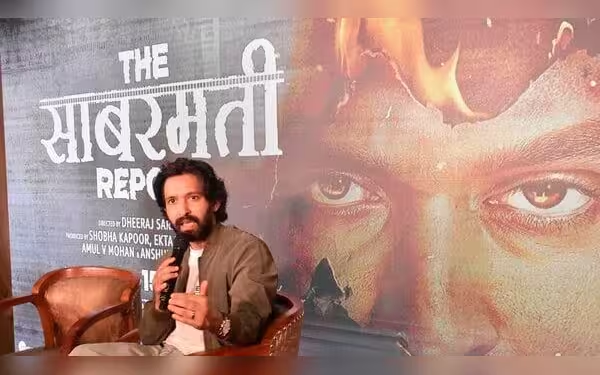Saturday, December 21, 2024 04:44 PM
PM Modi To Screen 'The Sabarmati Report' In New Delhi
- PM Modi to watch 'The Sabarmati Report' at 4 PM today.
- Film addresses the tragic Godhra train burning incident.
- Vikrant Massey announces retirement, making this screening significant.
 Image Credits: menafn
Image Credits: menafnPM Modi will screen 'The Sabarmati Report' today, addressing the Godhra train burning incident and Vikrant Massey's retirement.
Prime Minister Narendra Modi is set to watch the much-anticipated film "The Sabarmati Report" today at 4 PM in the Balyogi Auditorium, located in the national capital. This film, starring Vikrant Massey, delves into a significant and tragic event in Indian history—the burning of the S-6 coach of the Sabarmati Express near Godhra station in Gujarat on February 27, 2002. This incident resulted in the loss of 59 lives and sparked widespread riots across the region.
Produced by the well-known filmmaker Ektaa Kapoor, "The Sabarmati Report" was released in theaters on November 15, 2024. The film aims to shed light on the events surrounding the Godhra train burning and the subsequent riots, which have been subjects of intense debate and differing narratives over the years. Prime Minister Modi, who was the Chief Minister of Gujarat at the time of the incident, expressed his support for the film last month, stating, "Well said. It is good that this truth is coming out, and that too in a way common people can see it. A fake narrative can persist only for a limited period of time. Eventually, the facts will always come out!" This statement was made in a post on X on November 17, highlighting his belief in the importance of revealing the truth.
In a notable twist, PM Modi will be watching the film just a day after Vikrant Massey announced his retirement from acting, a decision that has left many of his fans in shock. Massey, known for his roles in various successful films, including "12th Fail," has made a significant impact in the industry, and his retirement marks the end of an era for many followers of his work. "The Sabarmati Report" is expected to be one of his last films, making this screening even more poignant.
As PM Modi prepares to view this film, it is essential to recognize the broader implications of such narratives in cinema. Films like "The Sabarmati Report" not only entertain but also educate audiences about historical events, encouraging discussions about truth, justice, and the importance of remembering the past. In a world where narratives can often be manipulated, the role of cinema in presenting factual accounts becomes increasingly vital. The screening today is not just a movie event; it is a moment of reflection on a painful chapter in Indian history, reminding us of the need for understanding and reconciliation.













